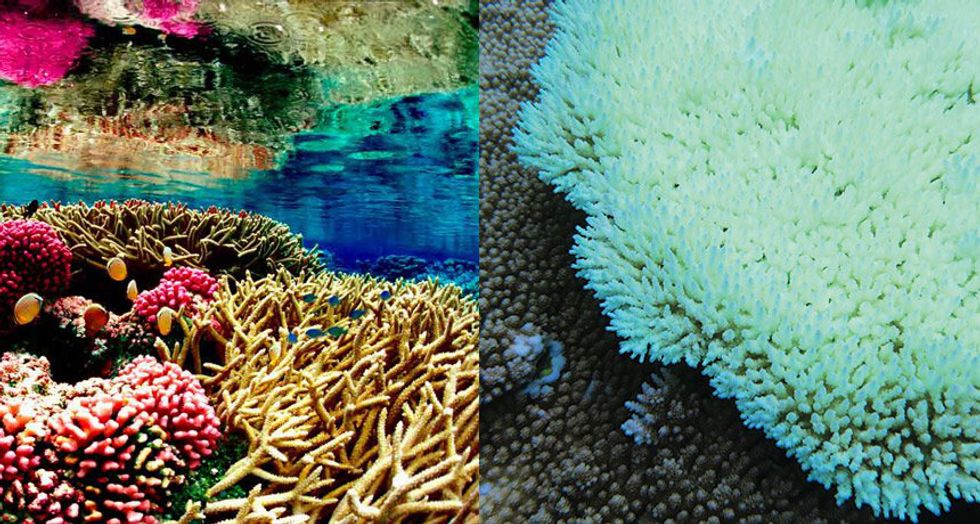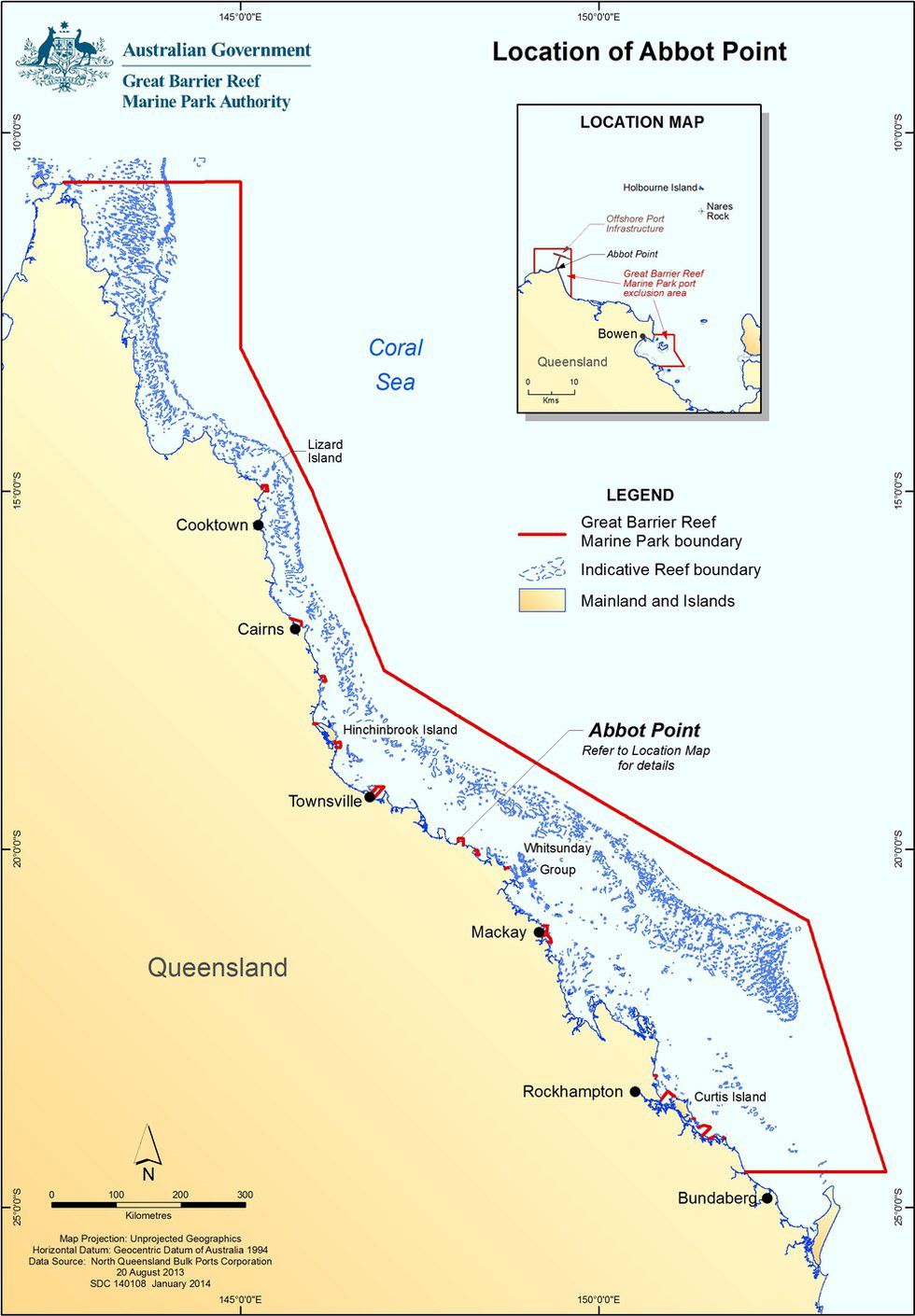The Great Barrier Reef in Australia is not dead. I repeat, the Great Barrier Reef in Australia is not dead. There is a significant difference between the two words dead and dying. Let this be clear that there is still hope in saving this magnificent home to hundreds of species of coral, colorful fish and other aquatic organisms.
An online "obituary" style article recently published by Outside Magazine went viral describing how the Great Barrier Reef is dead.
"The Great Barrier Reef of Australia passed away in 2016 after a long illness. It was 25 million years old."
It is not a question that there has been a detrimental impact on the massive reef over the past several years. Aspects of coral bleaching, fishing, mining, and burning fossil fuels have all played a role in the declining life of the reef. Coral bleaching being the most vital impact is when coral is put under extreme changes from temperature, light or nutrients. This causes the coral to release a symbiotic algae that causes them to turn white, hence bleaching.

The release of this obituary blew up on social media spurring memes, arguments and disbelief from social media users and scientists.The Huffington Post got in touch with Russel Brainard, chief of the Coral Reef Ecosystem Program at NOAA's Pacific Islands Fisheries Science Center. He believed that the article was meant to highlight the urgency of the situation. Although, to someone who are not well knowledgeable about the real issues and current state of the reef took this as a serious article that in fact it was dead.
Brainard told Huffington Post the recent bleaching event was a “severe blow” that resulted in serious mortality. Still, “we’re very far from an obituary,” he said. His main concern was that these overstatements will begin to ripple through peoples lives and assume that there is no hope left to saving the reef. In the Outside Magazine obituary, there is no factual statements that support their headline.
After reading the article, it is over dramatized to the current issues that are on hand. The message conveyed and placed upon many readers is that there is no hope left in salvaging the coral reef. There is HOPE. It is not all dead. Taking action to start relieving the aquatic ecosystem and continue to be vocal about the effect global warming has is the message that should be conveyed.
One thing I noticed on social media, especially on Twitter is how people responded to this article and began to incorporate the seriousness of the issue into jokes.
guy: talk dirty to me
— Bitch Problems (@SimpIy_Teens) October">https://twitter.com/SimpIy_Teens/status/7876492978... 16, 2016
me: the ocean is filled with plastic and sewage and the coral reef will be dead in 20 years because of the filth
yeah me too great barrier reef pic.twitter.com/kZJmcSnn93
— Tweet Like A Girl (@TweetLikeAGirI) October">https://twitter.com/TweetLikeAGirI/status/78770209... 16, 2016
I literally am the Great Barrier Reef pic.twitter.com/nE3CDQavG9
— Dory (@Dory) October">https://twitter.com/Dory/status/787691129424740353... 16, 2016
These parody accounts may be funny sometimes, but also may convey unnecessary messages. I know they mean no harm when they tweet, only trying to gain followers and page traffic. However, sometimes instead of turning a serious misconceived issue into a joke is unfitting. Why not post about a charity, volunteer work, solutions, or better yet the truth about what is actually happening instead of some petty, uncreative sentence.
People are allowed to their opinions and thoughts taken away from the article. Taken from me, if action is taken sooner than later, that obituary won't have to become a reality.

To learn more on how you can contribute to saving the coral reefs, visit http://coral.org/ home of the Coral Reef Alliance. The website explains what they do, what YOU can do and accept donations to their mission to save the coral reefs!











































